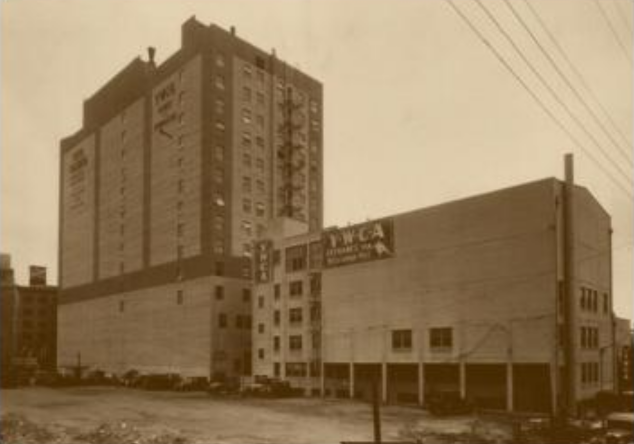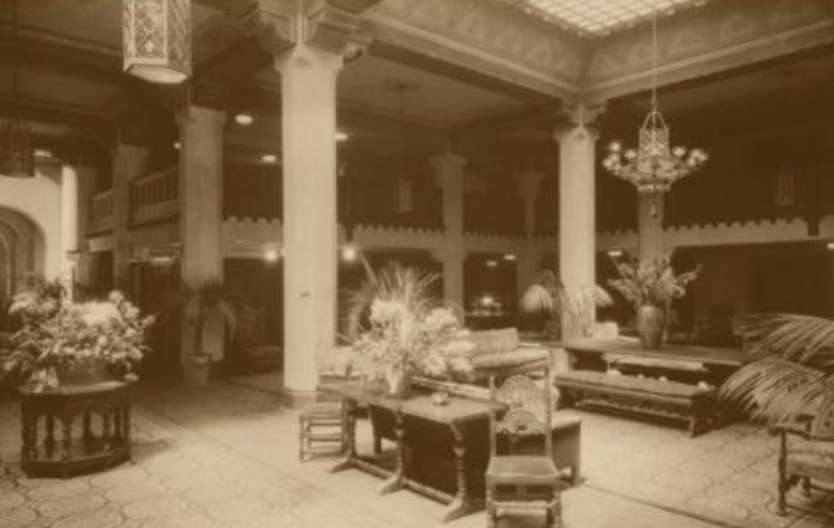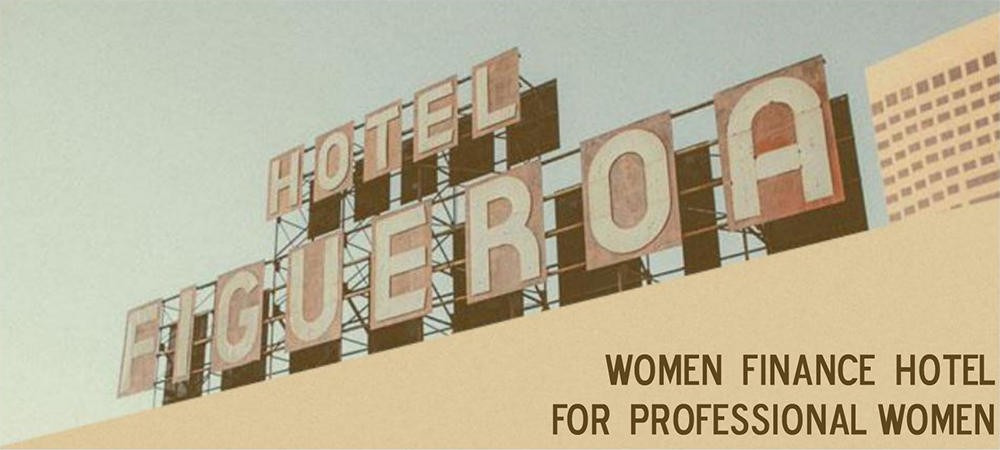The idea of a business that is available exclusively to a select group of people connotes discrimination and injustice; the story of the Figueroa Hotel (Fig) is interesting, because it practiced exclusivity for a progressive and meaningful purpose.
For the past half century, it has been common to see women expanding into and thriving in all career avenues; but have you considered the beginnings of this progress? Were women a part of the workforce 100 years ago? They were. Some of them even held important positions.
Women had entered the workforce in large numbers by the early 1900s, however, unlike today, it was uncommon to see a woman traveling alone and it was looked upon unfavorably. The Young Women’s Christian Association (YWCA) identified a demand that needed to be filled and decided to build a hotel catering to professional women. The Fig opened its doors in Los Angeles in 1926 with the mission of providing a safe space for traveling businesswomen.
History
The YWCA was founded in England in 1855 by Mary Jane Kinnaird and Emma Robarts as a support system for young women. The first American chapter of the YWCA was founded in Boston in 1866, from where it slowly spread across the nation. In 1893, Mrs. Z.D. Mathuss was elected president and Miss Clara Yale, the secretary of the Los Angeles chapter of YWCA. What started with 11 members quickly grew to over 200.
In the early 1920s, then chapter president Mrs. Chester C. Ashley initiated the purchase of a lot located at 939 South Figueroa Street. Being a fairly new organization, the women of the YWCA had to work hard to raise money for the purchase; the funds came from patrons and two mortgage bonds. The result of their efforts was a concrete and steel building with 409 rooms. The construction began in 1925 and August 14, 1926 saw a grand inauguration gala of the Figueroa Hotel; the over 300 attendees included members of nearly every women’s group in Los Angeles who toured the hotel and danced the night away in the beautiful Fountain Ballroom.

Since the hotel was built with women travelers in mind, the top nine floors were reserved for professional women and the first three floors were made accessible to men and families. The hotel’s first managing director was Maude N. Boldin and its coffee shop was run by Florence Gaskell and Ruth E. Allen. With women finding it difficult to procure equal opportunities as men in the 21st century, it is only imaginable how difficult it was for them in the early 20th century. The Fig, with its mission of serving professional women, was ground-breaking.
The Fig boasted all the amenities modern businesswomen needed, including a beauty salon where they could unwind as they had their hair styled. To make their stay more enjoyable, guests were offered golf courtesy cards, swimming lessons, bridge tables and weekly musical performances. While the women of the late 1920s enjoyed all this, the Figueroa had no intention of losing business from male guests; men had a smoking room and a shoe shine parlor to call their own. In an age when most women were still extremely confined to their homes and not afforded equal participation in society, the Figueroa Hotel became a melting pot for professional women from all over the world and the coffee shop and salons became social hubs.
A few months after its opening, the hotel hosted a high tea in honor of the Women’s Christian Temperance Union’s annual convention. Besides the YWCA’s own gatherings, Hotel Figueroa hosted events by the California Federation of Business and Professional Women’s Clubs, Chicago Women’s Club, the Girl Scouts, the California League of Women Voters, the Presidents Association and the Southern California Women’s Press Club.

Changes
After a couple of successful years, the Fig started facing losses and in 1928, the president of the YWCA had to start a special fundraising campaign to pay off the accumulated debt. The hotel management changed their hiring and accommodation policies by hiring a male manager and opening all floors to men. The new policy proved profitable as within a year, the hotel was able to cover all of its expenses. With the stock market crash, this success was short-lived, and the Fig had to be sold; yet the YWCA was able to maintain its headquarters until 1951.
The Fig was a revolutionary establishment; the first space of its kind available exclusively to women—owned, managed and financed entirely by women. At the time it was built, Hotel Figueroa was one of the largest women-owned real estate investments in the United States.
During the Second World War, the once women’s hotel became a meeting place for politicians and international leaders. It went through a phase of becoming a residence hotel, where people paid on a weekly or monthly basis but after the building was sold to a Swedish national, it returned to its old glory of hosting tourists. The new owner redecorated the original Spanish themed hotel to feature rich Moroccan flavors.
With the inauguration of the Staples Center in 1999, the Figueroa Hotel bounced back into business. It became a meeting place for sports teams, hosted several Grammy after-parties and even had famous regulars like Jack Nicholson, who celebrated many a night on the hotel’s roof.

Today, the YWCA continues its noble work by providing support and encouragement to women; their mission is to “eliminate racism, empower women and promote peace, justice, freedom and dignity for all.” The early history of Hotel Figueroa remains largely unknown, and it is the sad truth that most people who patronize the hotel or are simply familiar with it, remain oblivious to its important role in the women’s movement for equality. The Figueroa Hotel is currently closed to the public as it undergoes a $30 million renovation; this time with the hopes of returning with an updated version of its original Spanish Mediterranean flair.

 Login
Login

